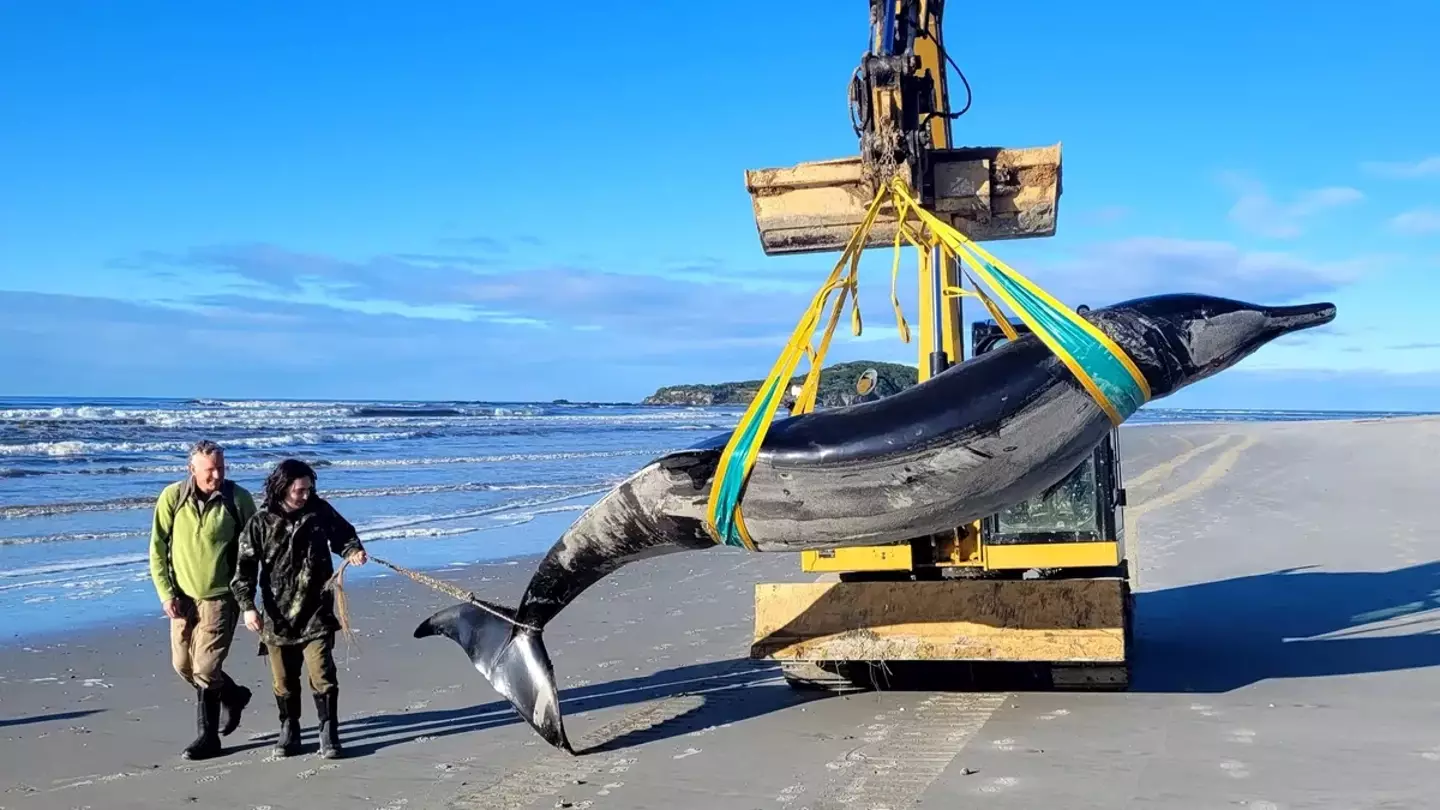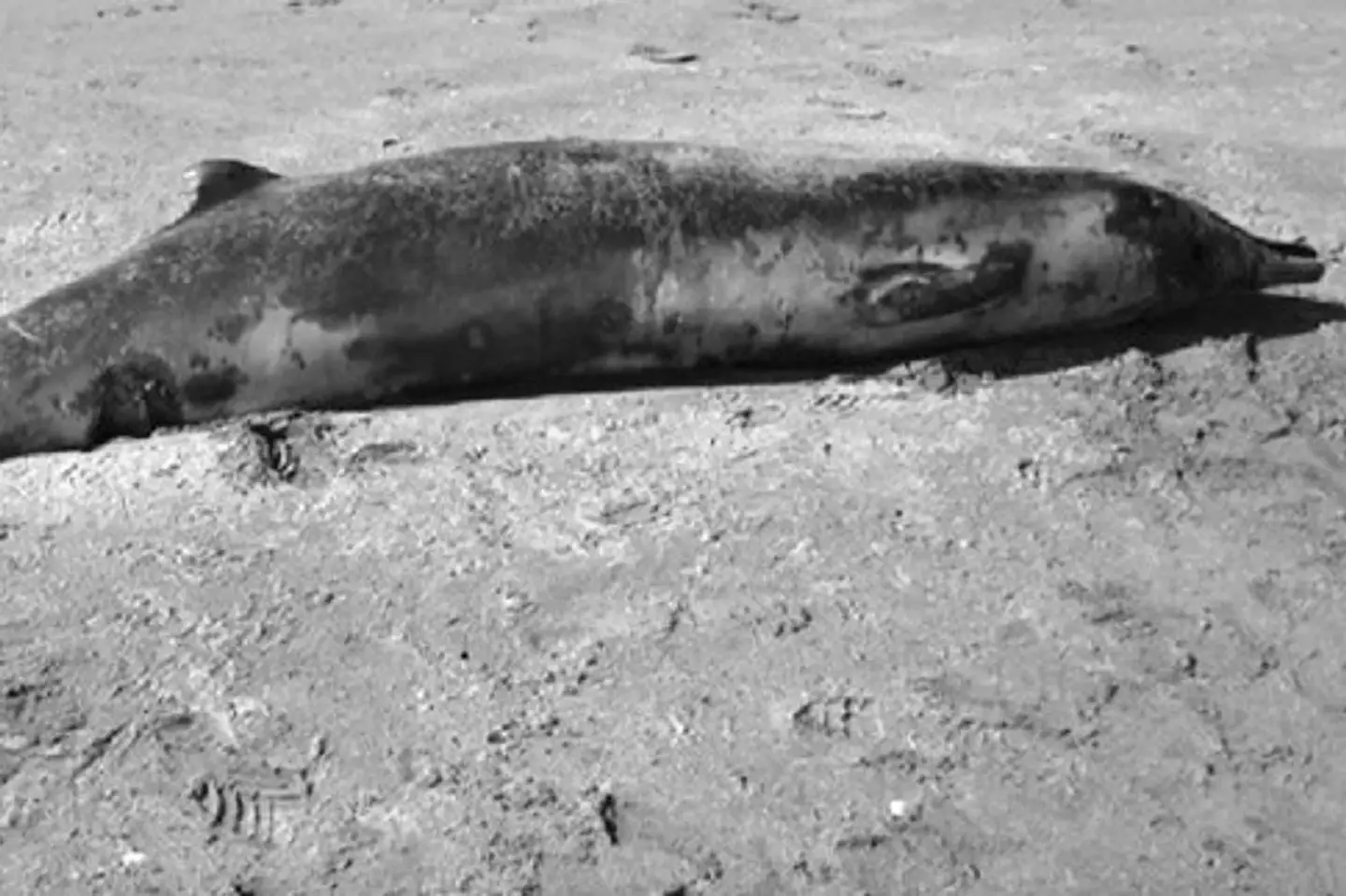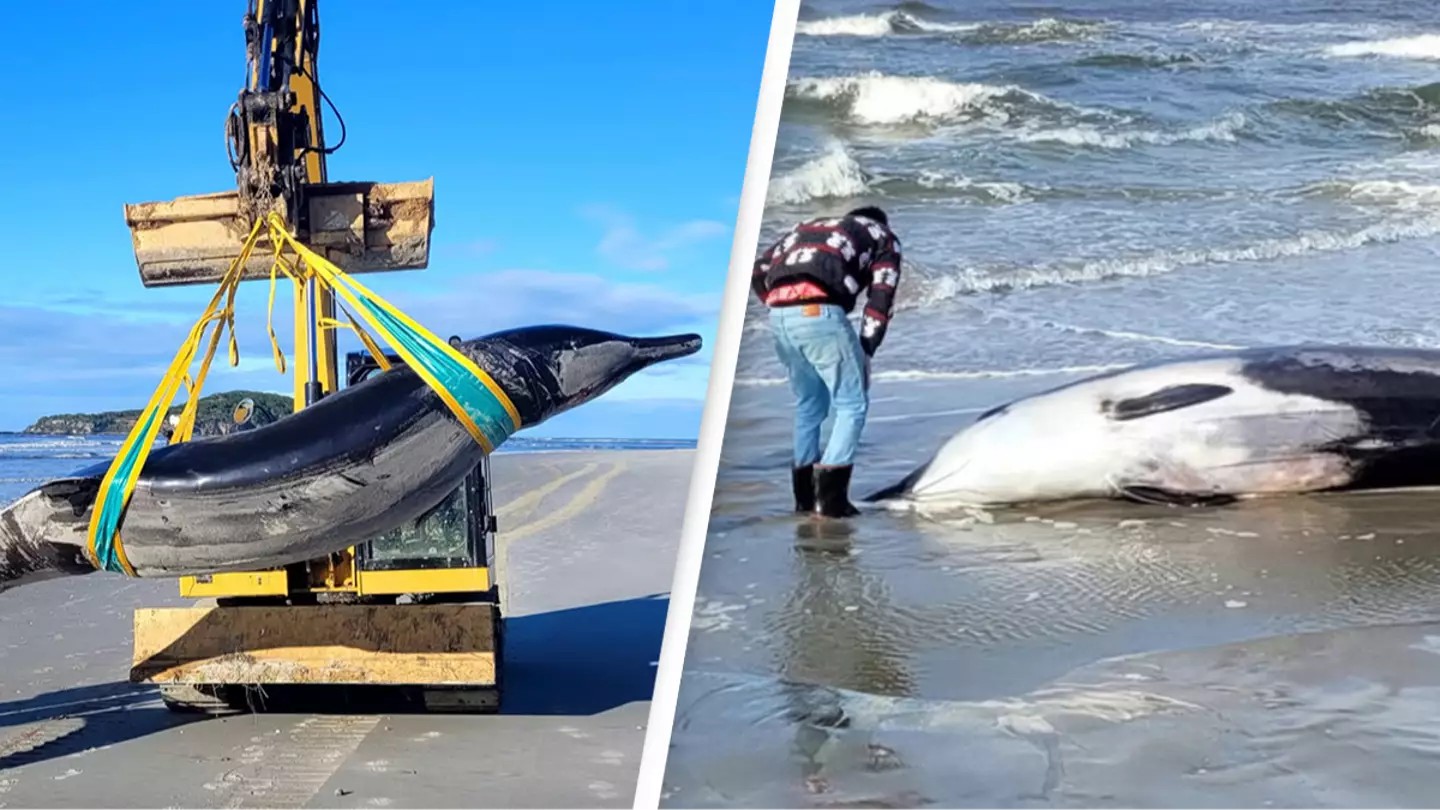A whale suspected of being the ‘world’s rarest’ species has washed ashore on a New Zealand beach.
On 4 July, New Zealand’s Department of Conservation (DOC) received a call about a whale stranded on Otago’s coastline near Taiari Mouth. When the team arrived, they stumbled upon what could be a monumental discovery—a whale so rare, only six such specimens are known to science.
Marine-mammal experts from the DOC and Te Papa rushed to the beach, as reported in a media release by the Department of Conservation Te Papa Atawhai.
At five meters in length, the male whale’s unique color patterns and the distinct shape of its teeth, skull, and beak suggested it might be a spade-toothed whale (Mesoplodon traversii), the rarest species of beaked whale. “A species so rare next to nothing is known about them,” the report highlighted.
The species was first identified in the early 1870s after a partial jaw was discovered on Pitt Island, New Zealand.

Other parts of spade-toothed whales have been found sporadically—with a skull fragment on White Island in the 1950s and another in 1993 on Robinson Crusoe Island, Chile. It wasn’t until 2010 that the first complete specimens, a mother and calf, were discovered stranded on Opape Beach in Bay of Plenty, New Zealand.
Gabe Davies, DOC Coastal Otago Operations Manager, confirmed that only six samples of this elusive creature have been documented globally since the 1800s. “Two more recent findings, in Bay of Plenty and north of Gisborne, helped describe the colour pattern of the species for the first time,” added the DOC.

“Spade-toothed whales are one of the most poorly known large mammalian species of modern times. […] From a scientific and conservation point of view, this is huge,” Davies expressed.
Samples of the whale’s genetics were collected by the DOC and Te Rūnanga ō Ōtākou and have been sent to the University of Auckland for DNA analysis to confirm its species.
For preservation, the whale has been removed from the beach and placed in cold storage.
“It is important to ensure appropriate respect for this taoka is shown through the shared journey of learning, applying mātauraka Māori as we discover more about this rare species,” said Nadia Wesley-Smith, chair of Te Rūnanga ō Ōtākou.

